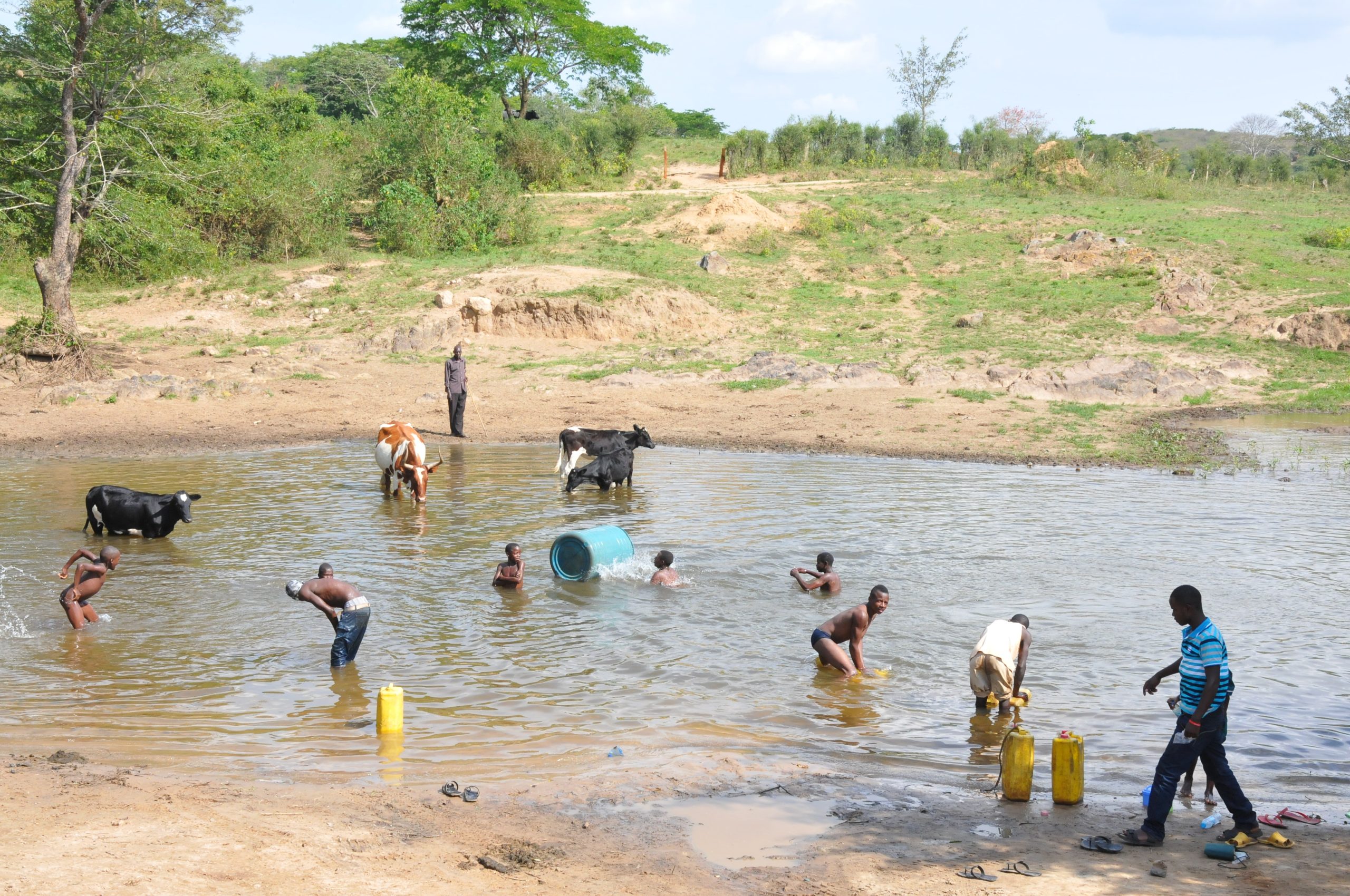By Charles Mwesigwa
Environmental Officer-Bushenyi District.
A wetland is an area which is permanently or seasonally flooded by water where plants and animals have become adopted. (The National Environment Statue 1995).
Wetlands provide habitat for thousands of species of aquatic, terrestrial plants and animals. They are also valuable for flood protection, water quality improvement, shoreline erosion control, natural products, recreation and aesthetics.
Wetlands are key drivers of economy although their roles are not directly linked to major sectors of economy. For this reason economic players have continued to encroach and degrade wetlands under the guise of economic growth.

Caption: A coffee farmer buying mats made out of papyrus to construct a nursery bed. Such a contribution by wetlands is not measured by many.
In agriculture sector, which is the back bone of Uganda’s economy, Wetlands play a vital role in the hydrological cycle by influencing climatic patterns which affect crop yields.
The unprecedented weather patterns result into crop failure, floods, disease outbreaks and prolonged dry spells all of which result into famine and poverty.
More so, In terms of animal husbandry, water is essential for production and without it, it becomes difficult to do farming as a business. Currently, a number of farmers are adopting Zero grazing practices and poultry farming on a large scale and in case of an interruption in water supply it creates a crisis among farmers leading to low levels of production. What has been a common practice is that, we tend to aim at extending water closer to people but little emphasis put on protecting water sources where the water is generated.
In Works and Transport sector, Wetlands hold water and release it in small amounts. At times, during the rainy seasons, degraded wetlands have no ability to hold water. It therefore means mass flow of water resulting into floods hence destroying road networks especially bridges. This affects the flow of goods and services between the consumers and the producers in the long run affect the final prices of the goods and services. For example, the recent stampede that happened on Katonga Bridge that has paralyzed transport of goods and services to and from the western part of Uganda. The damage of road infrastructure costs government a lot of more to repair and the burden is finally put on the tax payer.
Health sector: The population becomes health, if there is abundance of food. The effects of climate change like floods and prolonged dry spells can result into poor feeding resulting into increased incidence of diseases. In flooded areas human waste management and provision of safe water for drinking may be a dream as people sometimes are forced to stay in camps. This may result into outbreak of waterborne diseases. The eventual result is procurement of drugs to treat such diseases by the government hence increasing a burden on the tax payer. Sometimes, the climate change effects like mudslides claim lives of people and their property. In some places where road infrastructure is damaged people cannot access health facilities which may also lead to loss of lives and abandoning of family planning services.
Education: In many occasions , Climate effects have paralyzed education system for example in flooded areas and areas which are prone to mudslides , people are made to shift and stay in camp sites sometimes children can no longer access their schools because of the damaged road infrastructure which may result to discourage of learners and may even drop out of school.
The role of wetlands in water filtration cannot be underestimated, National Water and Sewerage Cooperation has the mandate to extend safe water to the population. Water is treated before it is extended to population for human use. The costs involved in the water treatment depends on the impurities present. In the absence of wetlands, the quantity of impurities becomes high and this makes treatment costs expensive. What we need to know is that extra costs involved is pushed to the final consumer.
Whereas Uganda is aiming at achieving the Sustainable Development Goals, the planners of this country should bear it in mind that restoration of wetlands is one of the key strategies in mitigating the effects of climate change.



